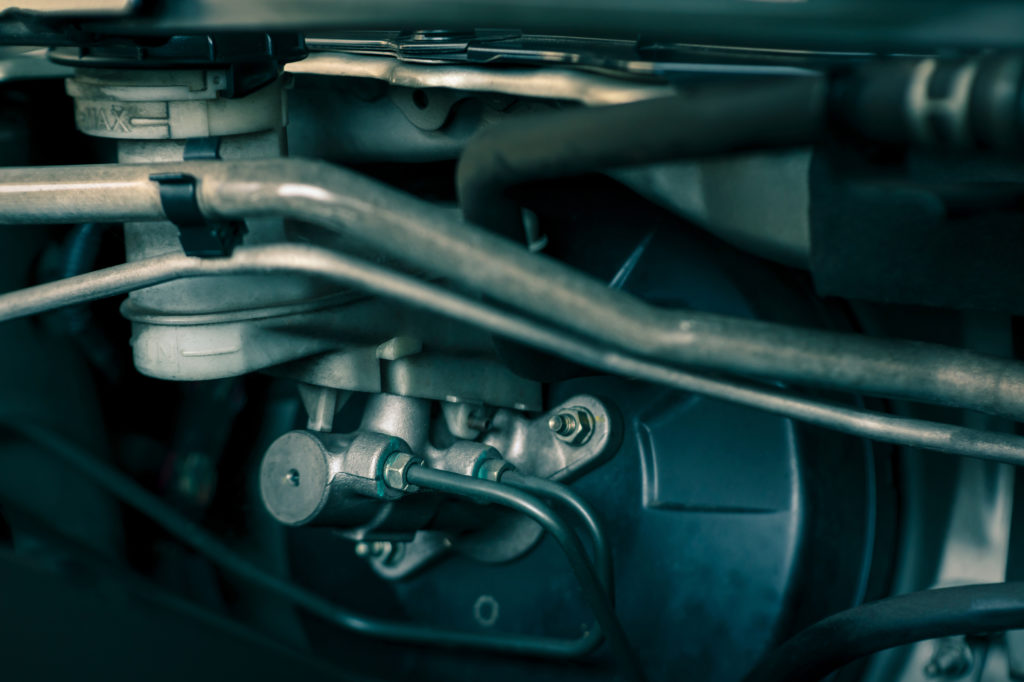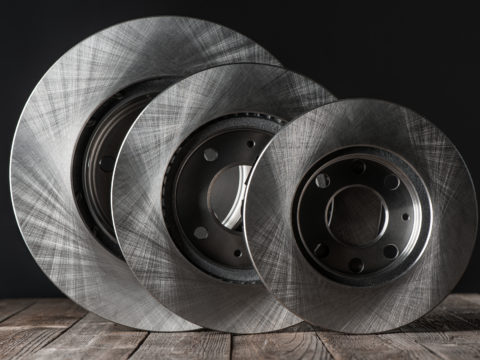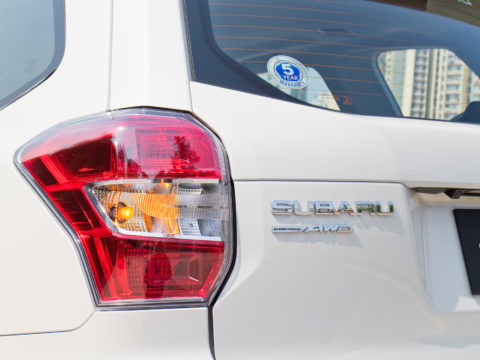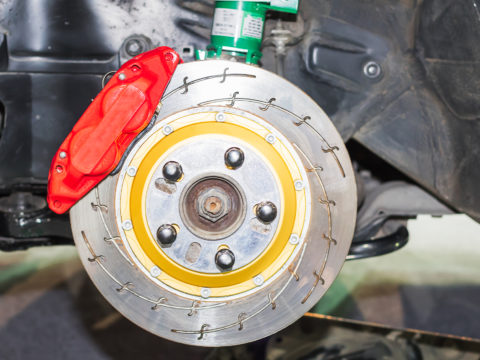A faulty brake booster can be dangerous and, in most cases, lead to an accident. If you’ve noticed your car slowing down or hesitating as it comes to a stop, there’s a good chance that your brake booster is bad.
We’ll walk you through the symptoms and solutions of what to do if this happens.

Contents
What exactly does a Brake Booster do?
A brake booster is a device designed to make your brakes work more efficiently. It does so by increasing the force you apply from the brake pedal to the master cylinder.
In most cases, a brake booster will be an addition to the disc and drum brake systems. These parts are essential to keeping your vehicle driving smoothly, no matter the road conditions.
A brake booster’s job is to provide effective braking and ensure you have a comfortable braking experience void of strains and stretches.
Types of Brake Boosters Available
There are two main types of brake boosters used in vehicles. Here’s a short explanation of each type.
Vacuum Brake Booster
This type of brake booster is most common and generally found in older vehicles.
The vacuum brake booster works by operating under the principle that air pressure within a sealed system will always equalize to atmospheric pressure when two such systems connect through an opening (such as a small hole). When you depress your brake pedal, it activates the master cylinder, which compresses the air within a brake fluid.
This action increases the pressure of the fluid, which moves to your brake booster through a line and activates it. When you release your pedal, there is an opening that allows atmospheric pressure into the system for equalization.
The process works on suction created by reduced airflow from pressing down on the brakes or depressing the gas pedal.
Power or Hydraulic Brake Booster
This type of brake booster is the second most common in vehicles. In a power or hydraulic brake booster, a piston helps power the braking system when you use your brakes.
A diaphragm (a rubber-like sheet) attached to this piston compresses air for equalization and activates it when pressure switches create reduced pressures.
Air is allowed into a sealed brake booster through a control valve opening, which has a check ball to keep dirt out of the system. When you press down on your brakes, it opens up, increasing airflow that activates the piston inside to power your braking system. Some vehicles have two brake boosters, one on each side of the car.
Brake Booster Illustration
This animated video illustration should help you understand how a vacuum brake booster works.
Functions of a Brake Booster
One of its most important functions is that it provides additional power needed by the brakes during heavy braking or sudden stops.
It is important to note that the brakes have a specific volume. If you keep on stepping on them, they will eventually run out of power and won’t be able to provide additional brake pressure needed for an emergency stop or heavy braking.
The brake booster manages this by creating a vacuum when the piston in the master cylinder becomes forced into its bore under the weight of the foot.
The brake boost is an intermediary between the master cylinder and the wheels, allowing additional braking power by drawing in atmospheric pressure. The atmospheric pressure will provide a greater force on the rear wheel cylinders during heavy braking or emergencies.
The two main functions of a brake booster are to amplify the force of your foot on the brake pedal and to create a vacuum for additional braking power.
These functions help to make the braking process more efficient, comfortable, and reliable for emergencies.
Symptoms of a Failing Brake Booster
If you suspect your brake booster has some problems, there are symptoms that you can look out for.
Here are some of the most common ones:
Brake Fluid Leakage
One of the most common symptoms of a bad brake booster is leakage. If you see fluid leaking from your car, it could indicate something wrong with your brake booster.
The best solution for this problem is to take your car in for a brake booster replacement.
Noisy Brakes
One of the most common symptoms of a bad brake booster is noisy brakes. If your vehicle’s brakes are squeaking or squealing, it might be because something is wrong with your brake booster.
The best solution for this problem would be to take your car in for an inspection and evaluation by a brake specialist. They should be able to identify the cause of your squeaky brakes and recommend a solution.
Reduced Braking Power
Another symptom of a faulty brake booster is a reduction in braking power. When you hit the brake pedal, you should feel a noticeable difference in the braking power of your car. If you don’t, then it’s likely that your brake booster is not functioning correctly.
If you’re experiencing reduced braking power, take your car to a mechanic as soon as possible. They will be able to diagnose the problem and recommend a solution.
Sinking Brake Pedal
One of the most common symptoms that indicate a faulty brake booster is when you press down on the pedal and feel no resistance. You’ll push down, but then your car will continue to move forward because your brakes are not activating.
If this happens, make an appointment with a mechanic as soon as possible. They will quickly get a suitable solution to your brake booster’s problem.
Engine Stops When You Apply Brakes
You’ll know you have a faulty brake booster when your engine suddenly turns off when you attempt to use the brakes. This situation can be incredibly dangerous, as it can lead to a car accident.
If this happens, take your car to a mechanic and have them look at the brake booster right away. There’s no telling how long it will be before the problem worsens.
How to Test a Brake Booster Check Valve
If you’re curious about whether or not your brake booster is functioning correctly, you can do a quick test on the check valve. The check valve is a small valve located in the brake booster line that ensures proper braking.
To test it, remove the vacuum hose from the brake booster and plug it into a jar. Apply suction to the jar and see whether the check valve holds. If it does, the brake booster is working.
If you’re still unsure whether your brake booster is working correctly, take your car to a mechanic for inspection.
Can a Bad Brake Booster Be Fixed?
In most cases, you can fix a bad brake booster. However, the cost of repairing it will depend on the severity of the problem and the type of car you have.
If you’re experiencing any of the symptoms listed above, it’s best to take your car to a mechanic for inspection. They’ll be able to tell you if there’s a problem with your brake booster and, if so, whether or not they can fix it.
Some of the standard courses of action your mechanic can take to fix your bad brake booster include:
- Replacing the brake booster
- Repairing or cleaning the brake booster
- Rebuilding the brake booster
If your mechanic tells you that you need to replace your brake booster, it’s important to remember that this isn’t a cheap repair. The repair work should cost you anything between $300 and $800.
Brake Booster FAQs
Some of the commonly asked questions around brake boosters include the following:
Does brake booster size matter?
Yes, booster size matters a lot! A brake booster that is too small won’t create enough vacuum to operate the brakes effectively. Conversely, a brake booster that is too large can make your car difficult to stop. Ideally, power brake boosters will need at least 17″ of vacuum to function effectively.
How much does it cost to fix a brake booster?
Fixing a brake booster should cost you anything between $300 and $800.
Can a bad brake booster cause engine problems?
Unfortunately, yes. A bad brake booster can cause engine problems because it interferes with the regular operation of your car’s power braking system. If you’re experiencing any weird or unusual drivability issues that seem to be related to your brakes, then get in touch with a mechanic immediately!
Can you drive with a bad brake booster?
Technically, yes. But it is not recommended to do so because the symptoms will only worsen and make your car harder to drive.
How long does a brake booster last?
The answer really depends on the make and model of your car, as well as how often you drive it and how hard you step on the brake. In general, a brake booster should last anywhere from 50,000 to 100,000 miles before needing to be replaced.
Is a brake booster and master cylinder the same thing?
No. A brake booster is an engine component that assists the braking system by pushing air into the cylinders for them to compress and push on your brakes harder than you could alone. The master cylinder works separately from a brake booster, but it still compresses the same hydraulic fluid to activate your brakes.














